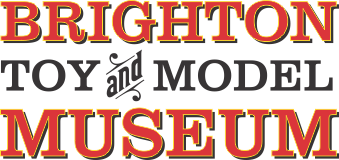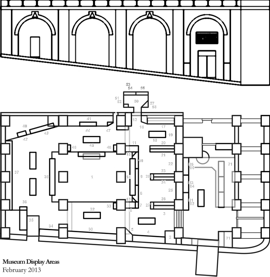Meccano clones
Meccano/Hornby/Dinky :
Mechanics Made Easy | Meccano | Super Models | Motor Car Constructor | Aeroplane Constructor | Dinky Builder | X-Series | Plastic
W UK US FR DE 1900s | 1910s | 1920s | 1930s | 1940s | 1950s | 1960s | 1970s |
The success of the Meccano system meant that a lot of other companies wanted a piece of the action. This was especialy noticeable just after World War One, when civilian metal supplies became available again, and small engineering companies that had been engaged in war work began casting around for product ideas that they could make money from – as a result, Frank Hornby found himself spending a lot of time suing companies for copyright infringement.
The range of similar "Meccano-inspired" nut-and-bolt products ranged from the similar-but-legitimately-different (such as Trix, and Primus, which had the unique selling point of combining wood and metal), to similar systems that used the same default half-inch hole spacings, to generic copies (like the Vogue sets), and the occasional total clone, which even shamelessly copied the manuals amd model plans (American Model Builder).
Some notable examples
- Trix produced metal construction sets with punched plates and strips, but although the concept was similar to (and probably taken from) Meccano, Trix prided themselves in being genuine inventors (with a patent list to match), and made such a point of trying to be innovative with their implementation of the idea (with their signature pieces having three staggered sets of holes rather than Meccano's one), that it's not really fair to call their system a direct copy or clone. Rather, Trix reinvented the Meccano concept, so that sets could include a smaller number of more general-purpose pieces. allowing the sets to be smaller and cheaper.
- Märklin Metall started out as a legitimate authorised Meccano version, Märklin Meccano. Märklin were the original suppliers of Meccano's clockwork motors up until WW1, and some suspect that they may have manufactured some other specialist parts, too. Märklin distributed Meccano in France and Germany and seem to have been originally seen as an ally. However, when the First World War broke out, dealings between Märklin and Meccano Ltd. were forbidden, and Märklin sold stock under their own name.
- Märklin continued selling Meccano and Meccano-based sets after the war, with the packaging being progressively redesigned to take it away from its Meccano Ltd. origins. The German distribution company that Frank Hornby set up in 1912 apparently had its rights confiscated in 1917 (due to it being owned by citizens of an "enemy" state), and after the war, this seems to have left Meccano Ltd. with the choice of either going along with the "status quo", and accepting that they'd assigned German rights to produce Meccano to a company that was no longer theirs, or to declare that the German rights were now void ... which might leave the field open for anyone to manufacture Meccano in Germany. In the event (after some legal arguing), they seem to have left Märklin to get on with it, on the condition that Märklin didn't use the name Meccano, and didn't do anything to suggest that their products were in any way endorsed by Meccano Ltd.
- Märklin (who had their own proud history of metal toymaking that preceded Meccano's) seem to have then made it their mission to invent their own radically different versions of as many Meccano parts as possible (most notably in the case of their approach to gears).
- Metallus currently manufacture individual parts and complete sets based on the old "Märklin Meccano" and "Marklin Metall" catalogues.
- Stokys started making Meccano-alike sets in Switzerland when supplies of "real" Meccano dried up during the war. However, the Stokys sets managed to incorporate some stylish Swiss "designer" elements - with the exception of "heavy-duty" pieces such as gears (which were still manufactured in brass), other items were made in lightweight aluminium, and the strips, instead of being simple pieces of punched steel plate, were thicker with a recessed panel along the centre, giving them a slightly "I"-shaped profile that combined additional rigidity with light weight, and a stylish modernist look. The fact that the Stokys parts were not just cheap "knock-offs" gives them some respectability within the Meccano community, and Stokys gears are sometimes sold as acceptable substitutes for original Meccano gears.
- A.C. Gilbert's "Erector" sets have a somewhat tortuous relationship with Meccano that is difficult to unravel. Gilbert had their own distinctive metal construction system that was based more on pieces that looked like crane box-sections, which appeared shortly after Frank Hornby visited the US to set up a US offshoot. Gilbert's system was recognisably different to Hornby's but after some slightly convoluted business deals, Gilbert ended up buying Hornby's American Meccano Inc business and manufacturing "American Meccano". Since the Erector name was easier to sell to American consumers, but Meccano was easier to make, Meccano-based sets and parts seem to have ended up being manufactured in the US and sold under the Erector name. In a further twist, later owners of Meccano bought the Erector name, and Meccano France currently sell the same sets as either "Meccano" or "Erector" (with the new Erector logo being very explicitly based on the current French "Meccano" logo, and the same basic pack designs), with the choice of brandname appearing to be fairly arbitrary.
- Lionel Trains also had some sort of relationship with Meccano Ltd. that is difficult to establish. Lionel seem to have manufactured Meccano's early 4 volt electric motor for them, and a Lionel catalogue from the period has a double-page spread advertising Meccano, with a Lionel train running on a Meccano bridge, so at some point there seems to have been a genuine attempt for Lionel and Meccano Ltd. to be partners with respect to the US market. The exact circumstances of the US Meccano factory being sold to Gilbert are unclear, but one theory has it that perhaps the factory was actually partly or wholly owned and/or run by Lionel, and that Lionel may have sold it to Gilbert to raise money for another venture.
- Exacto originally produced car parts and (unofficial) Meccano pieces as a response to Argentina's import restrictions preventing Argentinians from being able to get hold of European-made Meccano parts. After being approached by Meccano Ltd. and informed that they weren't allowed to do this, the two companies seem to have reached a very amicable understanding, whereby Exacto would produce official "Meccano" parts and full standard sets with full authorisation, as Meccano Argentina, in exchange for paying a royalty.
- Apparently, Exacto's rights to manufacture and sell Meccano were never revoked, but Meccano S.A.'s ownership of the trademark meant that they had to drop the Meccano Argentina name and revert to "Exacto". They are still going, and still making Meccano-by-another-name - Exacto's publicity material characterises their product as "real" Meccano ... but produced to higher quality than that produced in Liverpool or France!


